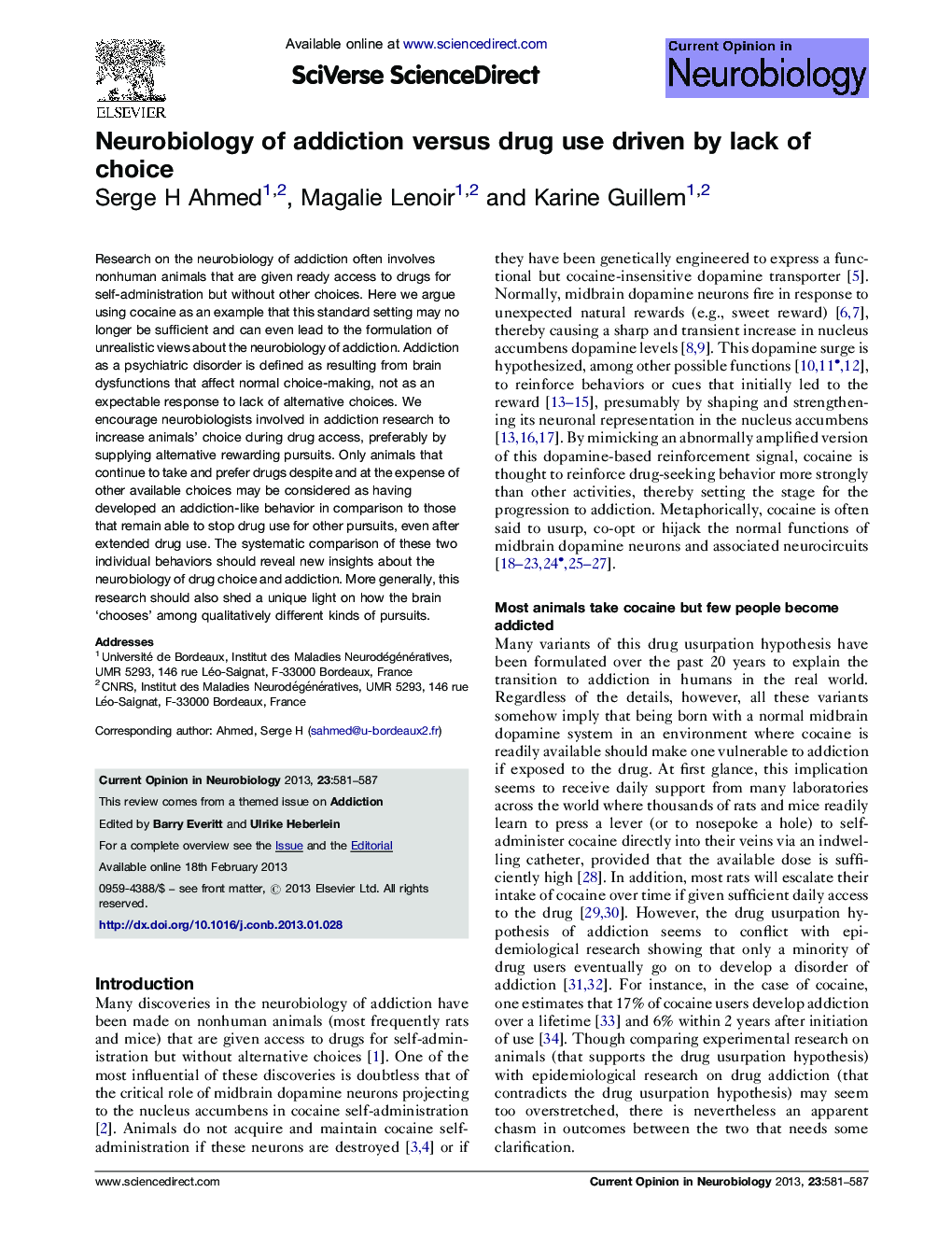| Article ID | Journal | Published Year | Pages | File Type |
|---|---|---|---|---|
| 6267110 | Current Opinion in Neurobiology | 2013 | 7 Pages |
Research on the neurobiology of addiction often involves nonhuman animals that are given ready access to drugs for self-administration but without other choices. Here we argue using cocaine as an example that this standard setting may no longer be sufficient and can even lead to the formulation of unrealistic views about the neurobiology of addiction. Addiction as a psychiatric disorder is defined as resulting from brain dysfunctions that affect normal choice-making, not as an expectable response to lack of alternative choices. We encourage neurobiologists involved in addiction research to increase animals' choice during drug access, preferably by supplying alternative rewarding pursuits. Only animals that continue to take and prefer drugs despite and at the expense of other available choices may be considered as having developed an addiction-like behavior in comparison to those that remain able to stop drug use for other pursuits, even after extended drug use. The systematic comparison of these two individual behaviors should reveal new insights about the neurobiology of drug choice and addiction. More generally, this research should also shed a unique light on how the brain 'chooses' among qualitatively different kinds of pursuits.
⺠Addiction results from brain dysfunctions that affect normal choice-making. ⺠Addiction is not merely drug use driven by a lack of options amongst which to choose. ⺠Research on addiction neurobiology involves animals that have no choice during drug access. ⺠It is thus difficult to distinguish addiction versus drug use driven by lack of choice in animal studies. ⺠Introducing alternative choices during drug access should allow such distinction thereby increasing the chance to discover addiction-related brain dysfunctions.
